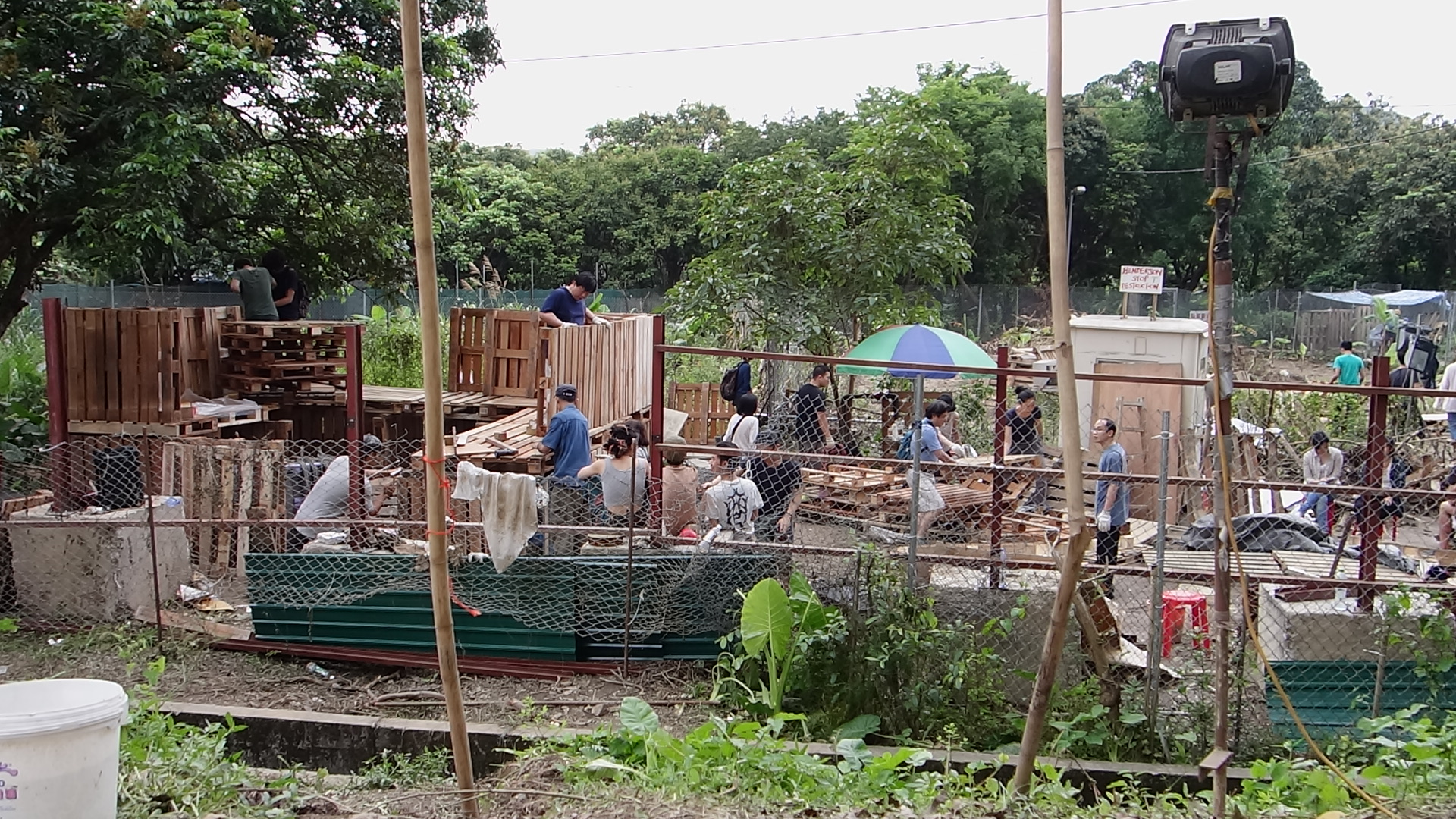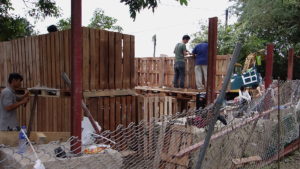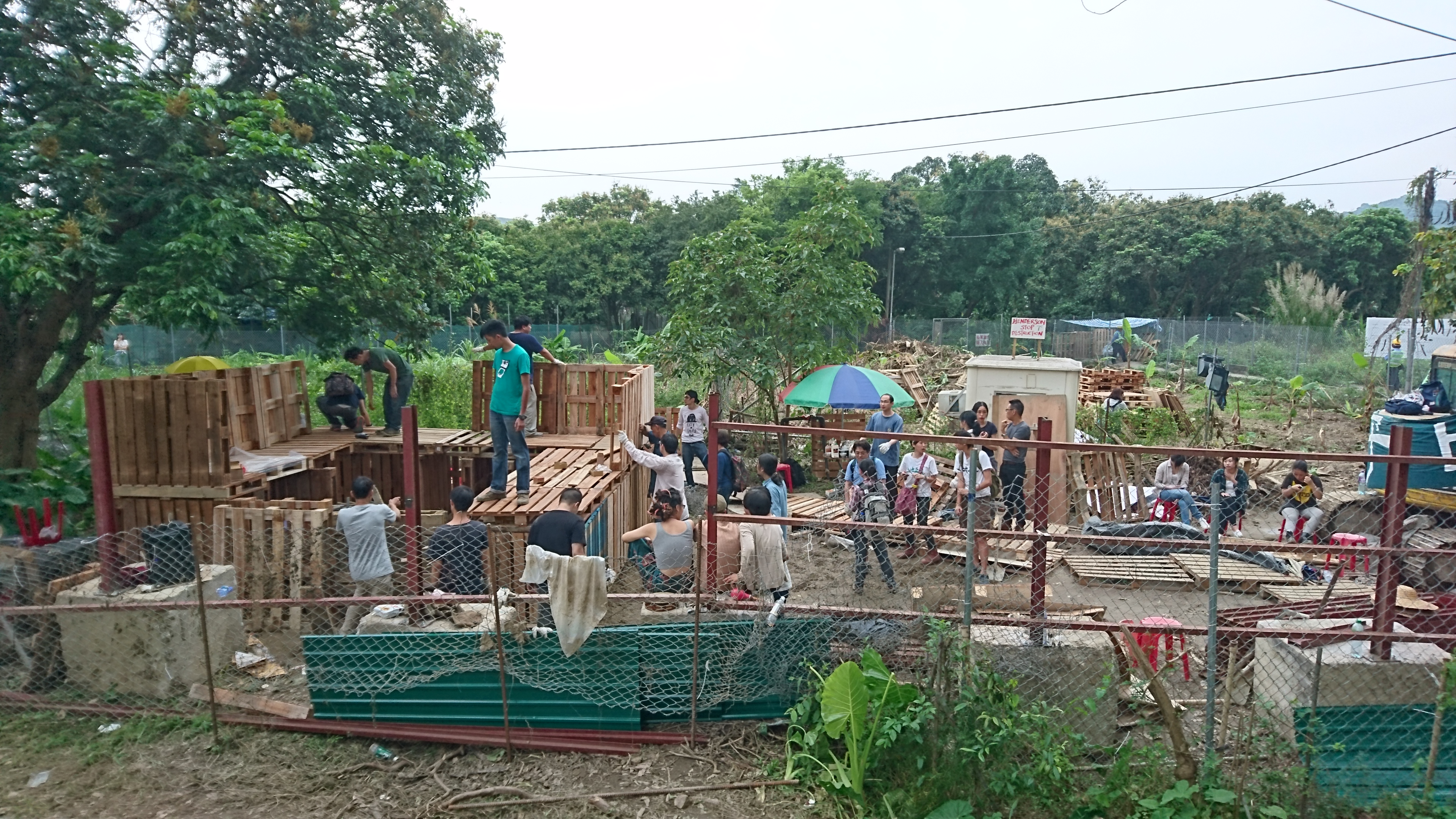The Clearing Of A Farm In Hong Kong

It wasn’t surprising when they came to take the farm. The developers owned the land. They had come once before, but the farmers sent them back. People were pushed and shoved; some were injured, and some went to jail. Everyone knew they would come back; they did.
“We know that the development for North East New Territories is a big thing. The affected area is large, the number of farmers and villagers is great, it is really a big issue, so I would like to stay here for help” said Zoey Wong, advocates local farming and gives cultural tours to local residents at Mapopo Community Farm in Ma Shi Po near Fanling in Northern Hong Kong. “I think Ma Shi Po chose me rather than I chose Ma Shi Po.”
A long time ago, the area was surrounded by small walled villages with locals farming rice, fruits, and vegetables. In the 1940’s and 1950’s many mainland Chinese came to Hong Kong to escape the turmoil. They rented land from the locals and started farming. Recently the landowners sold their land to Henderson Development. The government initiated a land-exchange program where developers can take the land they own and exchange it for land in other areas in the city on the condition the developers clear the land. Henderson needed to remove the farmers to take part in the program.
Setting aside land for farming has been controversial. There is a pressing need for development to build more housing, and yet there also needs to be a balance between how much to develop and how much to preserve for locally grown produce.
There needs to be ways to protect Hong Kong’s food supply. Residents here consumed over 2,240 tons of vegetables per day in 2014. The market share of local vegetables has dropped from 30% in 1990’s to 2% in 2014. Today, China accounts for 92% of Hong Kong’s fresh vegetables.
“Farming in Hong Kong is not only to feed people,” said Lau Hoi Lung, farmer and a member of the Land Justice Alliance. “Farming serves different functions in Hong Kong. It can replenish what is missing in the city. For example, for food safety, and to maintain the quality of food that can be made unstable coming from China.”
If the land is preserved some question if there would be anyone there to cultivate and use the farm land. Mok Nui has been a farmer in Ma Shi Po for the past 40 years and yet she has sold her land to Henderson.
“I’m old, so I want to sell my land. Those youngsters would not feel the same,” said Ms. Mok. “Now my sons and daughters are grown up, and even my grandchildren are married. I still work now. I prefer not.”
Lee Shau-kee, the chairman of Henderson Development, says in the South China Morning Post why people are so upset over such a “small piece of land.

“Hong Kong’s growth relied on the development of satellite cities, just like Sha Tin and Tai Po,” he said. “We should also redevelop northeast of the New Territories.” “Where do people live [if we don’t develop satellite cities]? It’s unreasonable to object to this [development].”
Henderson has cleared the site, erected barriers, and employed security guards but the people of Mapopo have said they will be back. It is just unsure if they can re-take the land.
